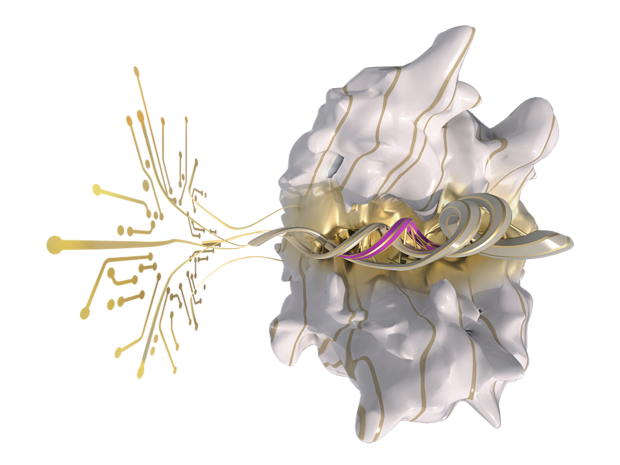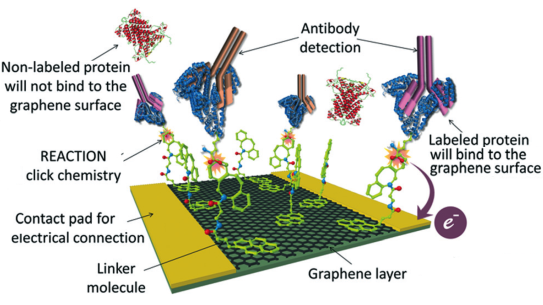The Promise of Graphene-Based Transistors for Democratizing Multiomics Studies

Speaker:
Kiana Aran, PhD
Associate Professor, Department of Bioengineering
Keck Graduate Institute, Claremont Colleges, CA
Co-Founder and Chief Scientific Officer, Cardea Bio Inc.
Abstract:
Systems biology is the theoretical framework that is integrating the siloed fields of biology. Multi-omics has emerged as the necessary experimental toolset to validate and make use of that integration. Today, multi-omics studies are challenging and expensive. To address the challenges of multi-omics, the Aran Lab is developing modern graphene nano-electronic devices that readily interface with molecular biology to form fully integrated bioelectronic systems. In this talk, Dr. Aran will discuss the utility of graphene transistors to simultaneously probe multitudes of biomolecules and biomolecular interactions such as amplification-free detection of RNA and DNA, proteins, exosomes, and enzyme functionality, including their role in aging, cancer, and pandemics.
Dr. Aran received her UG degree in electrical engineering from the CUNY before attending Rutgers University for her PhD work in Biomedical Engineering University. She then continued her postdoctoral studies at the UC Berkeley and was a recipient of the National Institutes of Health (NIH) postdoctoral training fellowship at the Buck Institute for Aging Research in 2015. Her efforts have been recognized by the Clinical OMICs 10 under 40 Award, Athena Pinnacle Award in Life Sciences, NSF Career award, Nature Research Awards for Inspiring Women in Science: Scientific Achievement Category’s Overall Winner in 2021. She will be awarded the Distinguished Engineering Medal of Excellence from Rutgers University this week. With funding from NIH, DARPA, the Gate foundation and private companies she has develop the next generation of electronic biosensors for precision medicine. Some of this technology has been transferred into practice by CardeaBio, a company developing bio-integrated electronic chips for precision medicine. Another company she founded, CRISPR QC, develops analytical tools for CRISPR.


